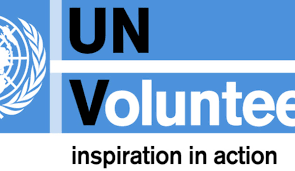
In this blog, Dr Tuesday Guchiki, a consultant with the State Department for Social Protection in Kenya, describes how the greater understanding and appreciation of the economic value of volunteerism have provided momentum to further integrating voluntary efforts into national plans and policy, and to the strengthening of national infrastructure
Kenyan communities have always voluntarily organized themselves, whether formally or informally, to help each other in times of need and in times of celebration. At independence, this volunteering spirit was adopted by the government of the day as “harambee”, loosely translated as “pooling resources for community development”. This spirit of harambee is the backbone of today’s volunteerism in Kenya.
Due to a lack of legal framework and investment, volunteerism in Kenya has been inadequately documented, making it difficult to establish its contribution to society and the economy. Research on volunteerism has always focused on the social, cultural, financial and philosophical dimensions, with no known body of research covering the economic dimension. This changed in 2015 when the Government of Kenya, in collaboration with the volunteer community, developed and adopted a National Volunteerism Policy. The policy provides guidelines on efficient and effective coordination, management and sustenance of volunteerism in Kenya. In addition, it seeks to ensure that volunteerism is embedded within national economic policies. This policy enabled groundbreaking research to be undertaken, attaching economic value to volunteerism in Kenya for the first time.
In 2017, research commissioned by the State Department for Social Protection was carried out to determine the contributions of volunteer work in Kenya. The results showed that Kenyan volunteers contributed a total of 669,630,288 hours to the economy in 2016. Based on average wages in each job category where the volunteers worked, their contribution translated to approximately USD2,362,778,900 or 3.66 per cent of gross domestic product.
Improved understanding and appreciation of the economic value of volunteerism have provided momentum to further integrating voluntary efforts into national plans and policy, and to the strengthening of national infrastructure.
The government has set up a National Standing Committee on Volunteerism, bringing together government departments, volunteer-involving organizations and the private sector for collective action and impact. The high-level committee is co-chaired by the Principal Secretary, State Department for Social Protection and includes representatives from volunteer-involving organizations and the private sector. The body is tasked with fast-tracking the development and implementation of volunteer support infrastructure and a legal framework for volunteerism in Kenya.










Add new comment